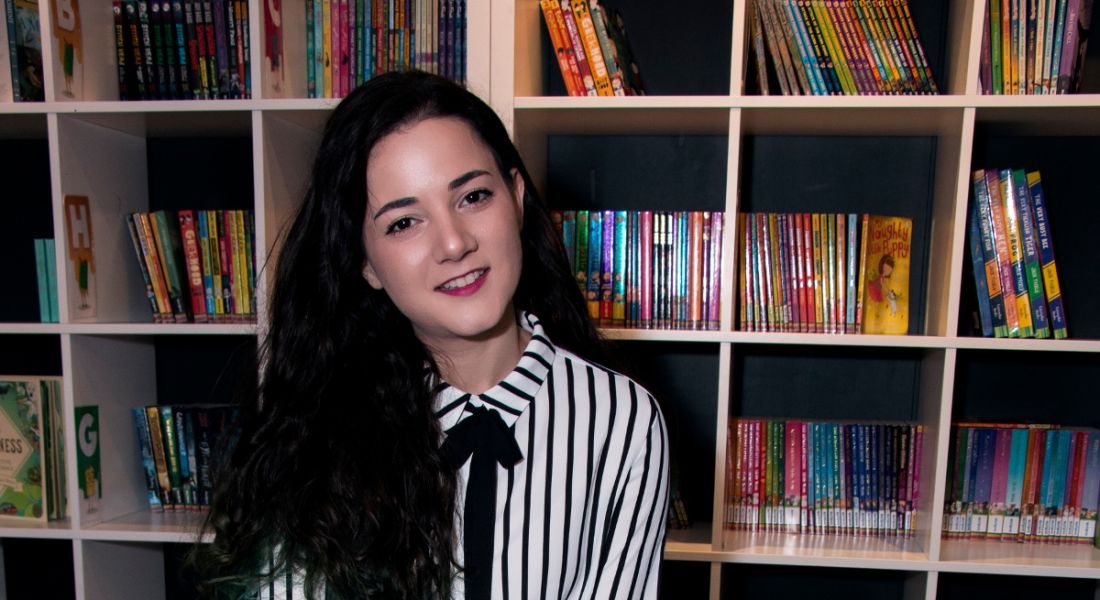For many, gaming is a great hobby, but imagine if you could turn that passion into your dream job?
For gamers, working in the gaming industry is likely to be a dream job. However, it’s not the kind of dream that needs to stay that way.
There are so many career paths in gaming, from becoming a game developer to working in user experience (UX) and even starting your own gaming company.
Sound ambitious? Perhaps, but that’s what Louise Leolin did.
Leolin is the co-founder of London-based indie games start-up DinoByte Labs alongside her partner Christian Lovdal. “I always say I’m a gamer first and a game developer second, so this has really shaped how DinoByte Labs has developed,” she said.
Leolin has a background in UX so that is always at the forefront of her mind when it comes to creating the best gaming experience for the players. As it’s a small company, Leolin has a hand in every element, from game design to sound engineering.
Having been a gamer since she was four, a gaming career seemed like a natural choice for Leolin but entrepreneurship ran in her family, too. “My mother started her own business when I was young, and watching it flourish was a big inspiration for me, so already then I knew I wouldn’t be constrained to only consider a traditional career path.”
With the gaming industry evolving so rapidly, it comes as no surprise that Leolin’s gaming career had to adapt to the changing world around her. “When I was a kid, gaming was sort of a niche thing, and today it’s completely mainstream. Especially with smartphones these days, almost everyone is a gamer, even if they might not realise it,” she said.
“Our industry is growing at a rapid rate, and this high demand means our workforce is growing and changing, especially in the last five years.”
Crunch time
Leolin discussed a phenomenon known as ‘crunch time’, something the gaming industry is notorious for. This period is largely to do with getting a game finished on time, when workers are expected to work massively extended hours, usually with very little additional compensation.
Last year, data from the Developer Satisfaction Survey by the International Game Developers Association showed that more than 76pc of game developers still work under crunch conditions.
“The game industry is especially notorious for imposing required ‘crunch time’ at certain studios and, while some people are able to plough through it, it’s important to keep in mind how it might negatively affect some of your workers,” said Leolin.
She said the first time DinoByte Labs crowdfunded for its upcoming game, Midli, felt similar to a crunch period for her, which even resulted in a full-on panic attack.
“I have been very open about how I deal with anxiety, including how it inspired Midli, so there is a certain irony to how much anxiety the preparation of that Kickstarter campaign caused,” she said. “While it was awful at the time, it taught me a lot about how to balance work life with mental health.”
Leolin said she’s really thankful for her experience with anxiety because it helps DinoByte Labs be more empathetic with people they’re working with. “We would rather take care of our team than enforce an unreasonable deadline.”
Breaking into the gaming industry
It can be difficult for someone who is passionate about gaming to know exactly where to go in order to get on the right career path. However, Leolin said there’s still plenty you can do from any age.
“Firstly, you need to figure out where you fit in,” she said. “You can be a coder, game designer, artist, sound engineer, marketer, producer, voice actor, accountant – there really is a fit for anyone.”
For those who want to be part of the actual game development area, she suggests starting to make games right now. “They can be little games, like a pen-and-paper board game or card games, or you can even use tools like GameMaker Studio or Stencil to create your own digital games with little to no knowledge of coding or art,” she said.
“Start thinking about your portfolio and build that up, because the entry requirements for working in games will often want to see that you have been part of making, and sometimes shipping, a certain number of games.”
For Leolin, it wasn’t until she was starting in university that she realised how impactful it could be to join the gaming industry and tell the stories she felt needed to be told through games. “With so few women in the industry as well, I was even more motivated to show that we are an important part of gaming, and encourage others to choose a similar career path.”
Louise Leolin will be running workshops at KidZania’s KidPreneur Festival on Saturday 13 October to inspire young people under 14 to kick-start their own business ventures.




